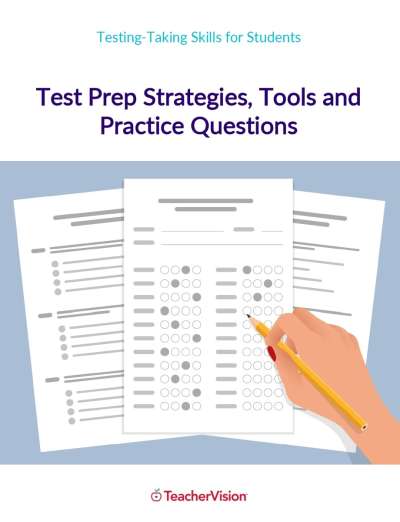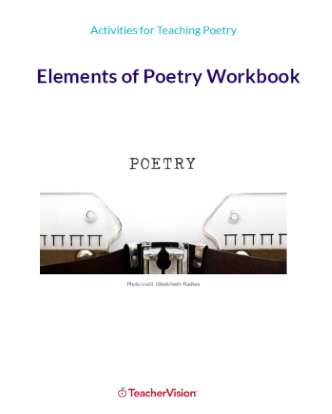Mini-lessons promote easy, regular skill-building
Teach your students smaller concepts with focused mini lessons; they will later be able to relate this smaller idea to a larger concept or skill. New teachers will find this resource particularly valuable.How Can You Make It Happen?
A great place to find ideas for mini lessons is right in your own classroom. What are your students struggling with? What errors pop up in their work over and over again? Take those errors and turn them into learning opportunities.
Primary
If students are having trouble with bigger words, the strategy of finding little words in the word might help. Take a sentence that contains a big word, such as sentence in the following example, and write it for students to read.
There were many words in the sentence.
Model what would happen if you came across the word and did not know how to read it. Thinking aloud, try to find a little word in the word you don't know. Are there any words that you know? Show students that you can find the words sent and ten in the big word. You could take the big word and write each letter on an index card to show students clearly how the little words can be found. Then you might ask, "What things have many words in them?" The answer might be dictionaries, books, paragraphs, sentences, and so forth. Tell students that finding little words within a bigger word might help them read a word they don't know.
Intermediate
A common problem that intermediate students have is how to use the words there, their, and they're. Searching through student writing is likely to turn up several cases of correct and incorrect usage of these words. Taking a few sentences from student work to analyze with students allows them to think about the words in an authentic context. These words can also be found in books the students are reading.
You might start a mini lesson on the uses of there, their, and they're by showing four or five sentences from student work that uses these words. Some teachers put sentences on transparencies and use an overhead projector. You might also use a computer to link to a TV monitor to display sentences from student work. Allow students to try to figure out which sentences are correct. From this discussion, guide students toward describing the correct usage of each word.
Ask students to find a passage or two from books they are reading that contain the words. Students can use these passages to confirm their ideas about the correct usage of words that they came up with in their previous discussion.
As a class, create two correct sentences for each word. Post these sentences on the wall of the classroom so that students will be able to refer to them as they write in the future. This mini lesson might lead into writing workshop.
Middle/High School
Teaching students to elaborate on their ideas can help them better support and clarify their ideas and write more commanding essays and papers. Reflecting on and evaluating ideas is a strategy that students can use both in discussions and writing.
Model how to interact with texts in different ways to show students what it looks like to elaborate on an idea. Think aloud as you model how to clarify, speculate, observe, or argue with texts.
Some prompts students can use when clarifying ideas are:
I think ___ because
I was surprised by ___
This is the same as ___
Now I see ___
One example of ___ isAfter modeling these strategies using the prompts, have students practice using the strategies by discussing texts with a partner.
How Can You Measure Success?
To measure the success of the mini lesson, look at student work to see if it has been affected by the topics addressed in the mini lessons. For example, a week after a mini lesson on there, their, and they're, look to see if the words are being used correctly more often. What about a month later?
It may be necessary to do more than one mini lesson on a given topic before improvement is seen throughout the class.













